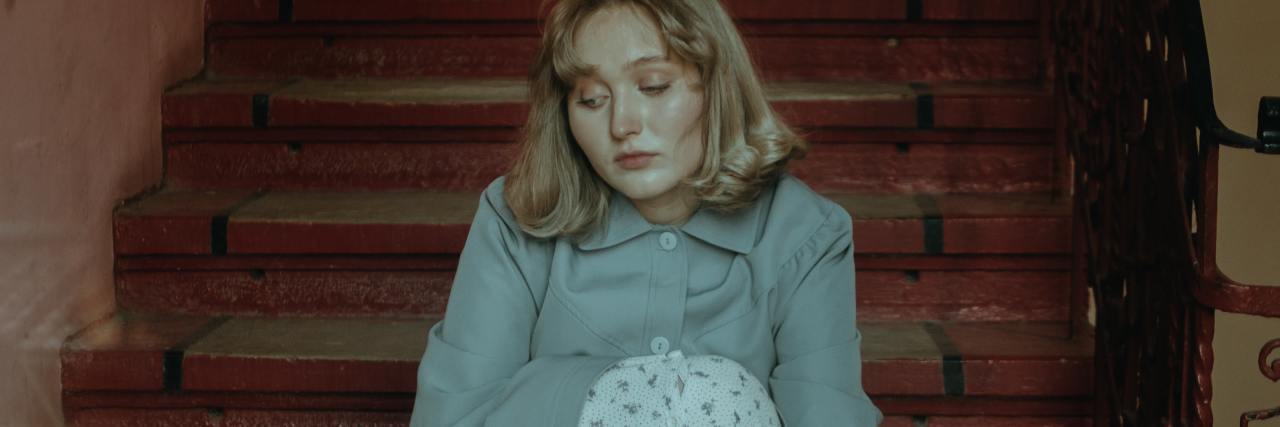Why Eating Disorder Recovery Doesn’t Look the Way You Think
Editor's Note
If you live with an eating disorder, the following post could be potentially triggering. You can contact the Crisis Text Line by texting “NEDA” to 741741.
Recovering from an eating disorder is not beautiful. There, I said it. And I will say it again for the people in the back.
Recovering from an eating disorder is not beautiful.
Recovering from an eating disorder does not look like what Instagram “recovery” accounts would have you believe. (And I put recovery in quotes because a lot of the time, it is people posting their food pictures looking for validation that they are eating adequately).
Recovering from an eating disorder is messy. At times, it’s even agonizing. At times, it feels wrong. At times, it feels worse than engaging in the eating disorder behaviors themselves. Because when you’re so used to numbing yourself out with behaviors, all those feelings you shoved down come flooding back up when you start recovering.
Recovering from an eating disorder in a society that praises diet culture and thin bodies feels counterintuitive. It goes against everything that you have been taught to believe your whole life.
Recovering from an eating disorder is scary. You’ve spent years manipulating your body and micromanaging your food. And if you have the privilege of being able to go to treatment like I have, you immediately have to give up all your control. You have to put your trust into a bunch of strangers who are going to tell you what and how much you will be eating. You will have to radically accept that your body may go through changes that your eating disorder is uncomfortable with. And your eating disorder will cling on to dear life just to keep you sick and prevent that from happening but you know deep down inside that it’s what is necessary.
Recovering from an eating disorder is confusing. You will be free from behaviors for weeks, or months, or even years and all of a sudden it will come back with a vengeance. Sometimes it’s when you’re alone in your room awake late at night staring at yourself in the mirror and mentally pulling apart your body. Other times it’s when you’re out with friends and family having a good time and the voice comes creeping back in to tell you you’re worthless without it.
Recovering from an eating disorder is sometimes sobbing over your food because your brain is telling you that you don’t deserve to eat. Or the physical pain of refeeding is so unbearable you can’t imagine having to take another bite, but you know you’ll never have proper hunger cues if you don’t push past the discomfort.
Recovering from an eating disorder is constantly having to be on guard because one day your eating disorder was restriction and then the next thing you know, it has shapeshifted into purging or binging or all of the above. When you think you’ve conquered one behavior, there come a whole slew of other behaviors like tearing and micro-biting that need to be managed as well.
Recovering from an eating disorder is having to overcome a lot of shame. Having shame around needing help or extra support. Having shame around feeling inadequate or like a failure for having a mental illness. Having shame around side effects from the eating disorder like hair loss and brain fog. Having shame around your recovered body because society has deemed it unacceptable.
So no. Recovering from an eating disorder is not always about one day being so all-consumed by it that you lose all sense of yourself and the next day going out to a restaurant and ordering whatever you want off the menu. It’s a process. It’s a lengthy, excruciating process. You likely did not wake up with an eating disorder so you most certainly will not wake up one day without one.
Maybe recovery is painful and difficult, but that doesn’t mean that it isn’t worth the fight.
Because in the end, you will reach a point where you can look at a slice of pizza without trying to calculate the calories in the crust. In the end, you will be able to look at yourself and be grateful that your body did not give out on you when you were running it into the ground. In the end, you will be able to create so many beautiful moments and memories that your eating disorder did not steal away from you. In the end, you will gain a new sense of yourself. You will have an identity that is not just the eating disorder. And in the end, you will realize that maybe your eating disorder served you or protected you at one point, but you don’t need it anymore. You can kindly say, “thank you, and screw you.”
Because in the end, recovery is about fighting for your life and you, my friend, deserve to live.
Photo by Vitaliy Rigalovsky on Unsplash

